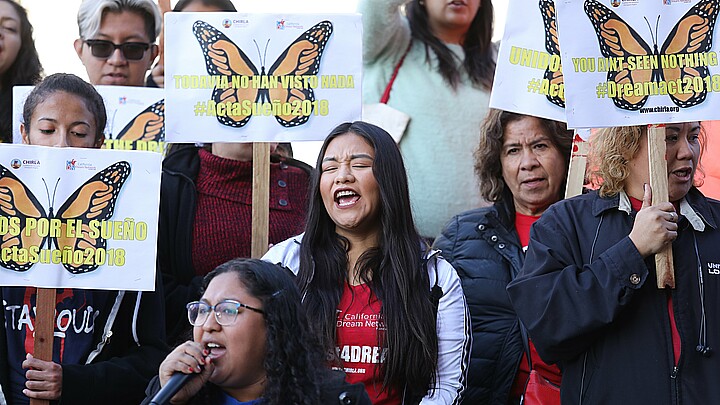Immigration
Nine GOP-led states ask federal court to block DACA program
The coalition of the GOP-led states called on Texas’ Southern District federal court to declare DACA to be “unlawful” and “unconstitutional”

February 2, 2023 5:38am
Updated: February 3, 2023 6:58pm
Nine Republican-led states asked a federal court in Texas on Tuesday to end the Deferred Action for Childhood Arrivals (DACA) program, which gives protections to almost 600,000 active undocumented immigrants who were brought to the U.S. as children.
The coalition of the GOP-led states called on Texas’ Southern District federal court to declare DACA to be “unlawful” and “unconstitutional,” according to court documents filed on Tuesday.
DACA was first implemented under President Barack Obama in 2012 to protect the undocumented migrants who were brought into the country before their 16th birthday, commonly known as “Dreamers,” from deportation.
The court documents state that DACA should no longer be allowed from accepting new applicants or renewal requests from existing Dreamers.
Previously, at the request of the same coalition, the Southern District blocked new applications for the program, claiming that the Department of Homeland Security (DHS) violated the Administrative Procedure Act by creating DACA.
Judge Andrew Hanen based his decision on the fact that the program was created by a memo, instead of being a formal rule. In August, the DHS issued a final regulation to replace the memo and formalize the DACA program.
The coalition, made up of Alabama, Arkansas, Kansas, Louisiana, Mississippi, Nebraska, South Carolina, Texas and West Virginia, is now asking Judge Hanen to review the new regulation, claiming that the final rule is also “unlawful.”
“The Final Rule—as the latest manifestation of the DACA program—is substantively unlawful for the same reasons as the DACA Memorandum. The Court should declare it unlawful and unconstitutional, vacate it in its entirety, and permanently enjoin its implementation (with a prudent transition for existing DACA recipients)” the filing concludes.










